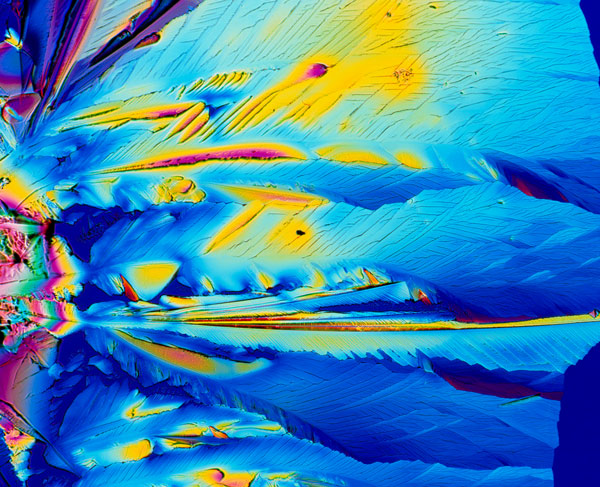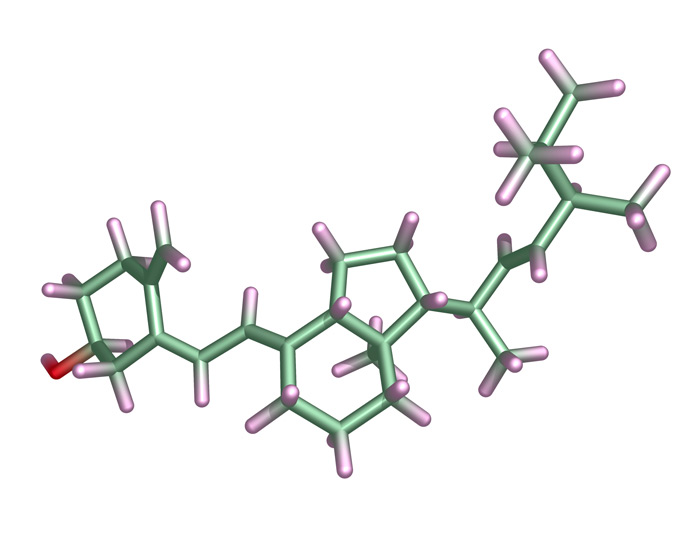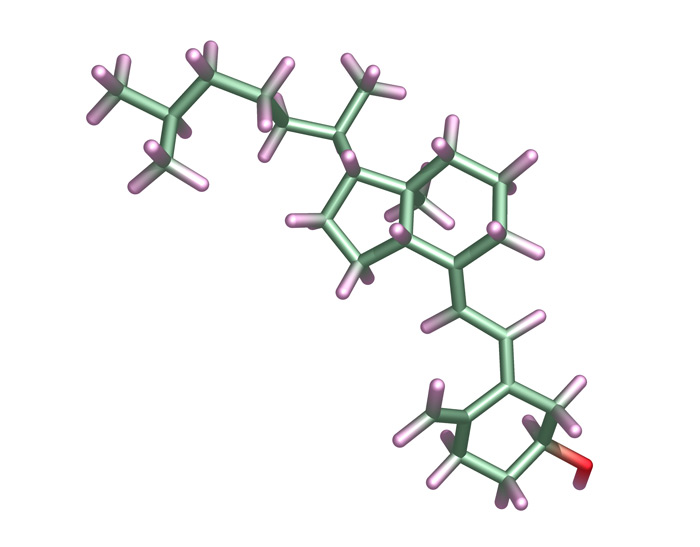Vitamin D is a substance related to cholesterol and belongs to the group of liposoluble vitamins. The following forms of vitamin D are of biomedical significance:
- Vitamin D3 (cholecalciferol) is found in fatty foods such as herring, salmon, cheese and eggs.
- Vitamin D2 (ergocalciferol) is found as a trace in plant foods from which it is formed into provitamin ergosterol (previtamin D2) under the influence of UV.
- Calcidiol (also known as 25-Hydroxycholecalciferol, 25-OH-D3) is formed in the liver as an intermediate product of the metabolism of vitamin D in the blood, and serves as a valid marker of vitamin D supply.
- Calcitriol (1,25-Dihydroxylcholecalciferol, 1,25-(OH)2-D3 or D hormone) is the proper biologically effective form of vitamin D. It is formed in practically all tissue from the precursor calcidiol and exhibits hormone-like characteristics.
Vitamin D holds a special place amongst nutrients. In terms of its effects, it is more akin to a hormone than a vitamin. It can also be formed by the body with sufficient exposure to sun; dietary intake is not necessary. Also the fact that the biologically active form of vitamin D, calcitriol, regulates more than 6000 genes emphasises its special place amongst the micronutrients.
Functions of vitamin D
Vitamin D has a key role in the overall metabolism:
- Small intestine. This is where vitamin D controls the absorption of minerals calcium and phosphate from foods thus contributing to a normal use of both mineral substances.
- Kidneys. In the kidneys, vitamin D inhibits the expulsion of calcium via the urine thus contributing to a normal calcium level in the blood.
- Bones. In the bone tissue, vitamin D controls the bone-forming cells (osteoblasts) responsible for building up bone and thus contributes towards maintaining normal bones. In conjunction with calcium, vitamin D can reduce the loss of bones minerals in women after the menopause. A lower bone density is a risk factor in bone fractures which can be caused by osteoporosis. Vitamin D also contributes towards a reduction in the risk of falls. Falls are a risk factor in bone fractures.
- Immune system. Specialised defence cells (macrophages) form antimicrobial protein compounds under the direction of vitamin D. Vitamin D thus contributes to normal functioning of the body's defence system.
- Skeletal muscles. Vitamin D controls the formation of protein substances in the musculature and thus supports the maintenance of normal muscle function.
Useful information.
- Vitamin D3 possesses a higher biological activity than vitamin D2. Vitamin D experts therefore recommend preparations which contain vitamin D3.
- In the metabolism, vitamin D works closely with the mineral substance calcium.
- The body is able to store vitamin D as a liposoluble compound such that the vitamin D supply can be guaranteed also with appropriate single weekly doses.
Information on production technology
- Basic materials of vitamin D3 preparations are available as a lanolin (wool fat) and lichen versions. The latter is also suitable for vegans.
© Intercell Pharma GmbH






